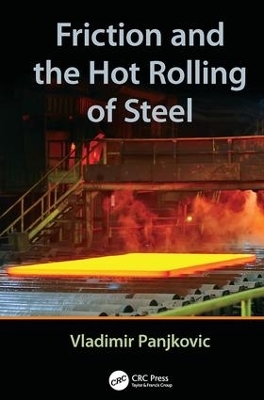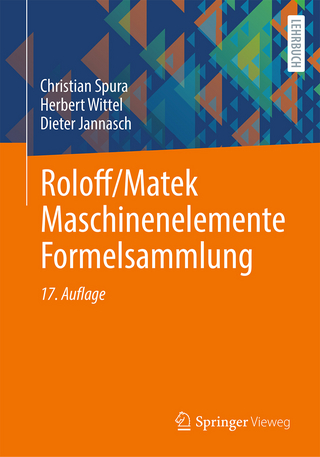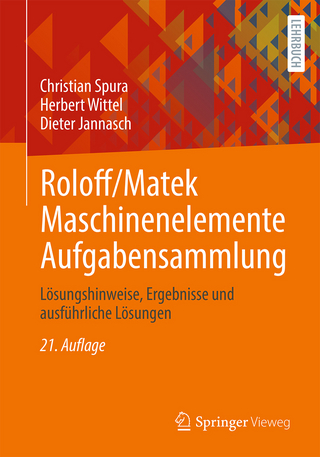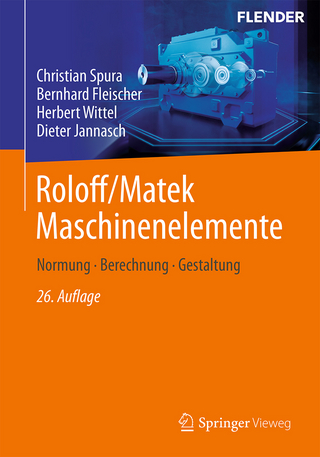
Friction and the Hot Rolling of Steel
CRC Press (Verlag)
978-1-138-07717-1 (ISBN)
It explains the base mechanisms of friction, and offers insight and instruction on improving the control and understanding of friction in hot strip mills and other industrial plants. The text presents mathematical models of friction in control and general engineering in a way that enables engineers to test and refine them in their plants. Engineers have the ability to use them to control friction and minimize its negative effects, particularly as it relates to energy waste and product defects.
Organized into four sections, this book outlines the evolutional concepts of friction, and covers the general phenomena relevant to the rolling of metals. This includes the impact of roughness and velocity, basics of liquid and solid lubrication, mathematical modelling, and the properties of materials that affect friction in steel rolling, such as metals, oxides, and carbides. It connects the theoretical concepts, laboratory-scale observations, and phenomena in other areas of science and engineering to the large-scale industrial process of hot rolling. It also addresses roll properties, oxidation, wear and chemical composition of rolls and their impact on friction, the evolution of friction over schedules and roll campaigns, and mathematical modelling of friction in hot rolling.
Friction and the Hot Rolling of Steel
contains a large body of technical information that includes various chemical and physical properties of relevant materials, mathematical models, and plant and laboratory observations. It also provides an extensive reference list of sources that address specific problems and interests in more detail.
Presents practical problems that help academics and industrial researchers to identify promising new research areas in tribology and metal processing
Offers an insight into the principles of the effective research that combines both academic excellence and industrial relevance
Illustrates with observations and easy-to-understand analogies, enhancing the understanding and control of the mechanisms that influence friction in industrial plants
This text services technical, research, and academic personnel working in steel processing, railway engineering, rolling of other metals, solid lubrication, the automotive industry, and more.
Vladimir Panjkovic, PhD, graduated with a degree in electrical engineering from the University of Novi Sad, and earned his PhD in materials science and engineering from the University of New South Wales. His fields of work include the applications of artificial intelligence to process control, development and deployment of mathematical models of ironmaking processes and steel rolling, analysis of tribological problems in hot strip rolling, and the design and commissioning of thermal equipment. Panjkovic has been awarded the BlueScope Steel Research Excellence Award; the National Project Excellence Award in Automation, Control and Instrumentation; and the John A. Brodie medal in chemical engineering.
Early Studies of Friction. The Eighteenth Century. The Nineteenth Century. The Twentieth Century and Beyond. Roughness and Friction. Liquid Lubrication, Stribeck Curve and the Friction-Velocity Dependence. Solid Lubricants. Modelling of Friction in Control Engineering. Modelling of Macroscopic Friction. Friction on the Atomic and Molecular Scales. Tribological Properties of Oxidised Metals and Carbides. Chemical Composition and Microstructure of the Shells of HSS, HiCr and ICDP Work Rolls. Presence and Behaviour of Oxides in Roll Gap. The Impact of Roll Wear on Friction. Friction Evolution over Schedules and Campaigns. Relation between Friction and the Chemical Composition of Rolls. Mathematical Models of Friction in Steel Rolling. Appendices. References.
| Erscheinungsdatum | 22.04.2017 |
|---|---|
| Zusatzinfo | 18 Tables, black and white; 139 Illustrations, black and white |
| Verlagsort | London |
| Sprache | englisch |
| Maße | 156 x 234 mm |
| Gewicht | 453 g |
| Themenwelt | Technik ► Maschinenbau |
| Technik ► Umwelttechnik / Biotechnologie | |
| ISBN-10 | 1-138-07717-8 / 1138077178 |
| ISBN-13 | 978-1-138-07717-1 / 9781138077171 |
| Zustand | Neuware |
| Haben Sie eine Frage zum Produkt? |
aus dem Bereich


